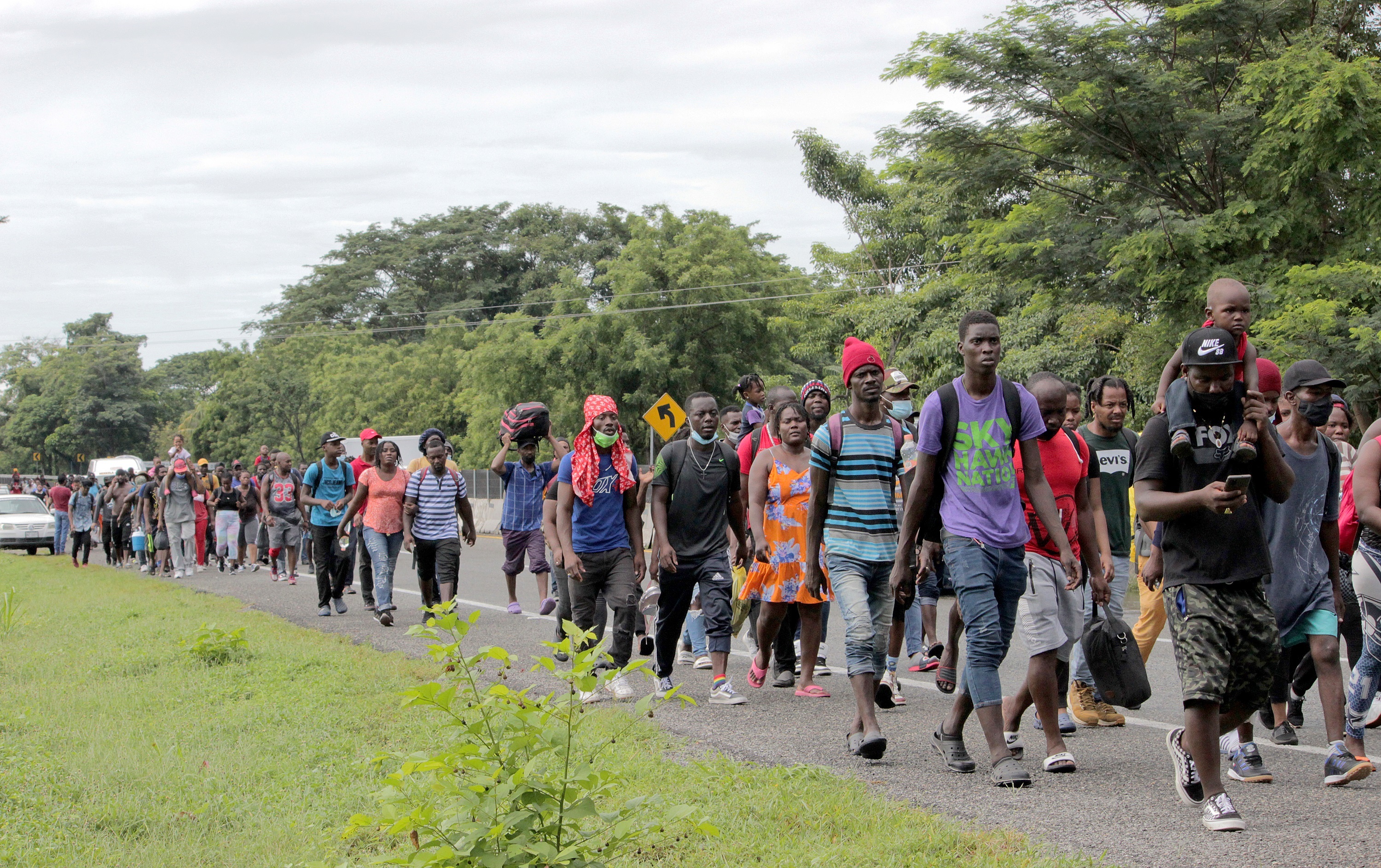
Hundreds of migrants left this Friday in a caravan from the city of Tapachula in order to reach Mexico City where they intend to regularize their immigration status. However, they had barely advanced a few kilometers when they had a strong confrontation with federal authorities.
The caravan, called the “Migrant Way of the Cross”, left around 07:00 local time (13:00 GMT) from this city bordering Guatemala, where thousands of migrants have been stranded for weeks and even months.
The contingent, made up of men, women and children, took their bags and set out through the streets of the city to the coastal highway of Chiapas to head towards the capital, more than a thousand kilometers away.

Salvadoran migrant Carlos Riquelme told Efe that he was tired of going to the Mexican Commission for Aid to Refugees (Comar) and the National Institute of Migration (INM) to try to get them to attend to his case.
He explained that he has been in the city for three years now - called a “jail-city” by activists - and that, when he finally obtained a resolution to his asylum request from Comar, that was negative.
The Central American explained that he walked in a caravan past, but was stopped by the immigration authorities.
“I wasn't even deported to my country. They left me in Mexico,” explained the man, who says this will be his last attempt.
The foreigner, who travels with other migrants and carries several bags on him, indicated that his goal is to stay in Mexico, but in an area where there are greater employment opportunities.
“We know that many more people (migrants) will join along the way. Our destiny is to be able to advance to our destination, which is the northern border,” the man added.
Venezuelan migrant Ivel Antonio Martínez indicated that the economic situation is difficult in Tapachula.
However, they have begun to walk and seek the protection of federal authorities in their transit. “We don't want violence or confrontation. We want peace and free passage,” he explained.
Migrants walked from Tapachula to the Viva México ejido, located about eight kilometers away.
The members of the migrant caravan collided with elements of the National Institute of Migration (INM) and the National Guard (GN) at the height of the first checkpoint in Viva México, but managed to break the security fence that had been placed by federal authorities.
In this first clash there were about 150 National Guard personnel.
The INM delegate in Chiapas, Paola López Rodas, surrounded by her agents, asked the migrants to return and regularize their immigration status, but her request was ignored.
Many of the women and children migrants fell during the brawl. However, none of the migrants were arrested at that time and they continued on their way along the coastal road.
In a second clash, some seven kilometers later, the migrants encountered a wall of federal troops, at whom they threw stones.
Some of them were held by the authorities, so the caravan, just a few hours after its departure, is already advancing with the depleted contingent.
This is the second migrant caravan of the year, after a first contingent of about 500 people who left last January but barely advanced about 20 kilometers under pressure from the authorities.
In September last year, Mexican authorities thwarted the advance of four migrant caravans that left Tapachula.
Then, several UN agencies and NGOs criticized the use of force in the operations to disintegrate these caravans.
Another caravan, which walked for more than a month, arrived in Mexico City in mid-December.
The region is experiencing a record flow to the United States, whose Customs and Border Protection Office (CBP) detected more than 1.7 million undocumented immigrants on the Mexican border in fiscal year 2021, which ended September 30.
Mexico deported more than 114,000 foreigners in 2021, according to data from the Migration Policy Unit of the country's Ministry of the Interior.
In addition, the Mexican Commission for Refugee Aid (Comar) received a record 131,448 refugee applications in 2021. Of these petitioners, more than 51,000 are Haitians.
EFE
KEEP READING: